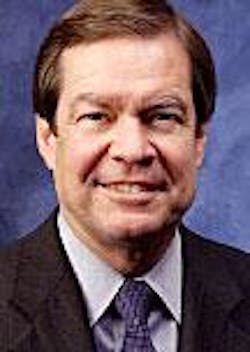Devon Energy maintains strategy as largest independent
Devon Energy Corp., Oklahoma City, has succeeded by adhering to its 32-year strategy "to create a strong, powerful company very focused on quality assets—both quality production as well as quality exploration—heavily weighted toward natural gas and heavily weighted toward North America," said J. Larry Nichols, chairman and CEO.
The company has grown into the largest US oil and natural gas independent by doing one meaningful—"relative to our size"—merger or acquisition "almost every year" since Nichols and his father, John W. Nichols, founded the firm in 1971 (OGJ Online, Aug. 22, 2003).
In 2004 and beyond, Devon plans to do the same thing it has done so well in the past—"build though acquisition, exploration, and exploitation," Nichols said. "As we've gotten bigger, we've added a larger exploration component in deep water and internationally that we didn't have the means to take on when we were small."
International expansion
One unit, Devon Energy China Ltd., recently began production from Panyu oil field in the South China Sea (OGJ Online, Oct. 14, 2003). That production is expected to increase steadily, as additional wells are completed, to a peak of 60,000 b/d in third quarter 2004.
Earlier this year, Devon signed a $17 million production-sharing agreement to explore for oil and natural gas in Syria on Block 26, which covers more than 11,000 sq km (OGJ Online, June 2, 2003). Devon is operator of the block with 80% interest; partner Gulfsands Petroleum Ltd. of Houston holds 20%.
The Syrian prospect "is only a teeny-tiny part of our operations, something that Ocean [Energy Inc.] was committed to before our merger," said Nichols. "It's being done with the knowledge of the Department of State, and we'll see where it goes. If it can help improve US relations in that area and benefits our shareholders, that's fine."
Devon merged with Houston-based Ocean Energy earlier this year in a stock-swap deal valued at $5.3 billion (OGJ Online, Feb. 24, 2003).
Devon expects to maintain its E&P budget at $2.4 billion in 2004, the same as for 2003. "There's good access to capital markets now for the larger independents, if they have good prospects," Nichols said. "I don't know what the capital markets are like for small independents—I used to, but not any more."
Diversified portfolio
Meanwhile, Devon has assembled a diversified, well-balanced portfolio of drilling prospects, ranging from its low-risk, low-cost development of long-life coalbed natural gas (CBNG) reserves in the San Juan and Powder River basins to the high-risk, high-cost exploration in the deepwater Gulf of Mexico, where the company is the largest independent leaseholder. It holds 1.1 million net acres in the deepwater gulf, with 96% undeveloped.
Its Northeast Blanco Unit in the San Juan basin was, in the mid-1980s, one of the first and most successful CBNG projects and is still producing today. Devon also is the largest operator in the prolific Barnett shale play in the Fort Worth basin—"now the largest gas field in Texas"—where it employs a fracture technology that has dramatically improved the performance of wells. The company claims drilling success rates of 95% with CBNG and 100% in the Barnett shale.
Devon is the second-largest acreage holder in the Western Canadian Sedimentary Basin, with some 8 million net undeveloped acres there and another 2 million net undeveloped acres in the frontier areas of northern Canada, where it's the largest acreage holder in the Mackenzie Delta and the Canadian Beaufort Sea.
The company's largest concentration of proved reserves outside North America is in Azerbaijan, where Devon has a 5.6% interest in the Azeri-Chirag-Gunashli oil fields complex, estimated to contain more than 4 billion bbl of proved reserves.

